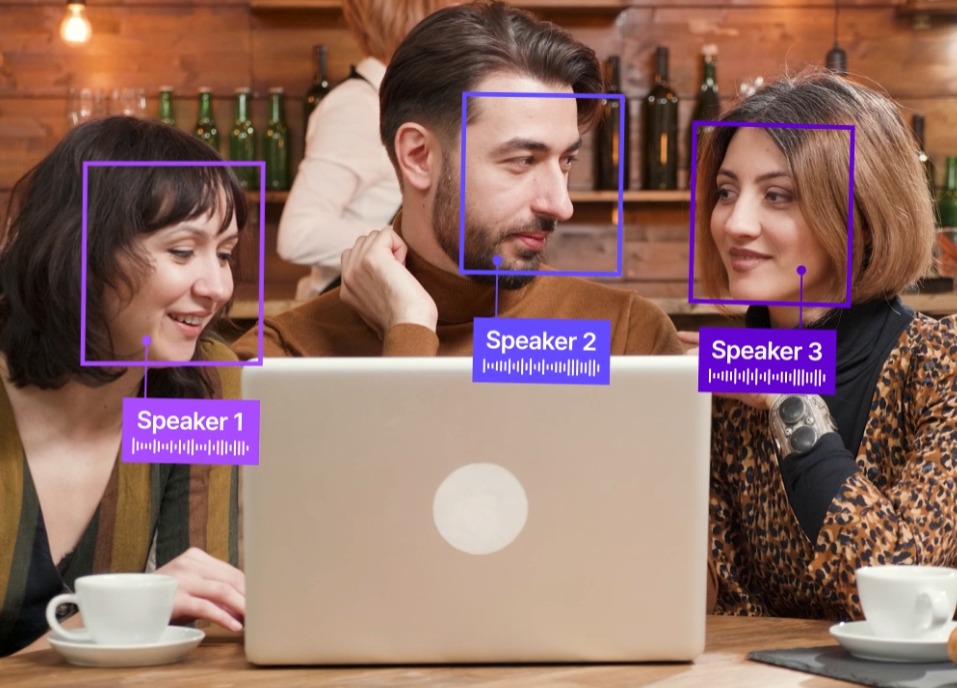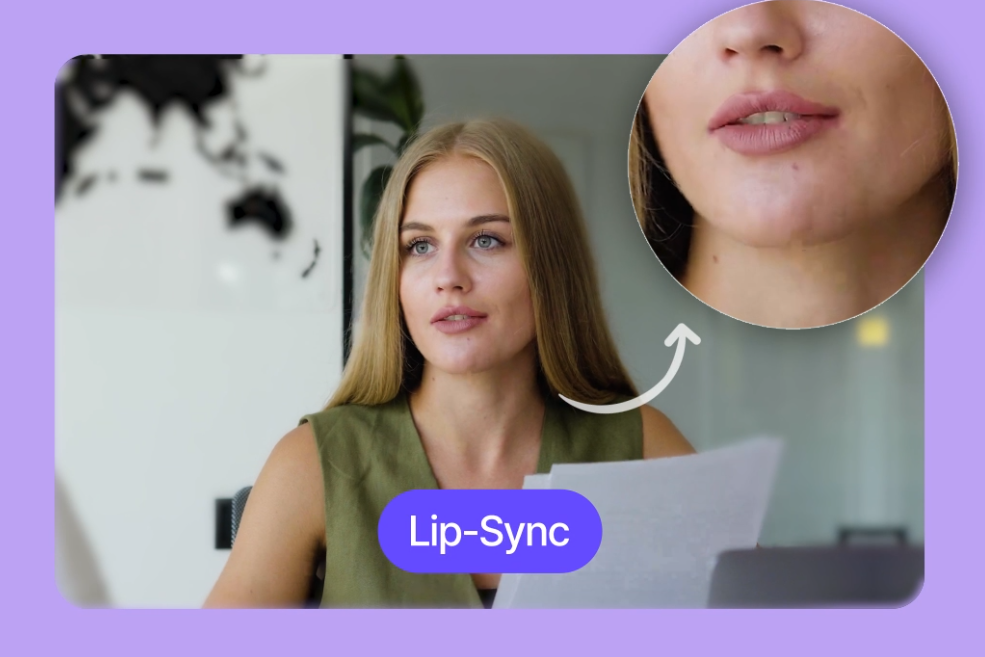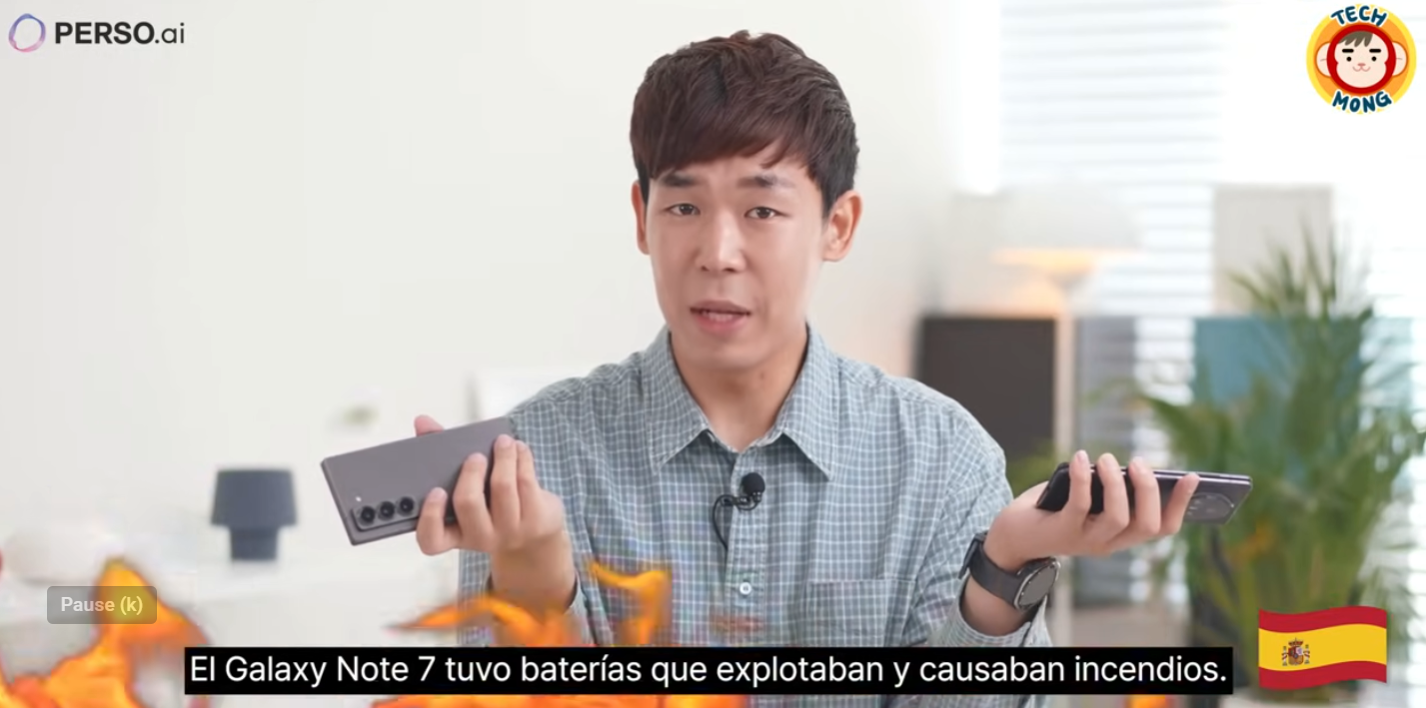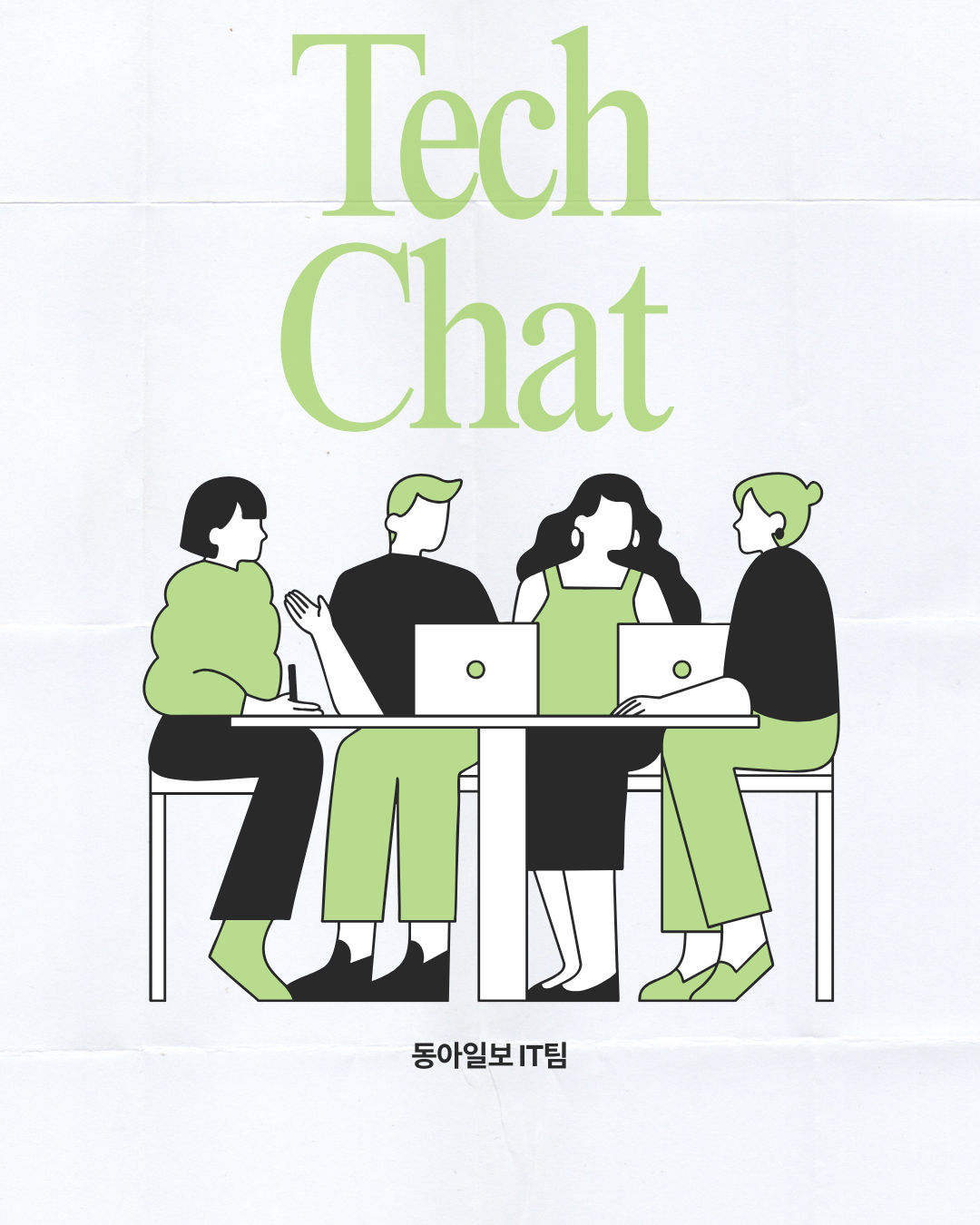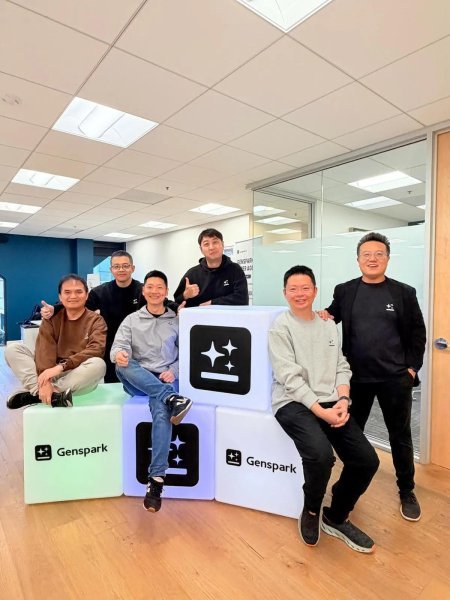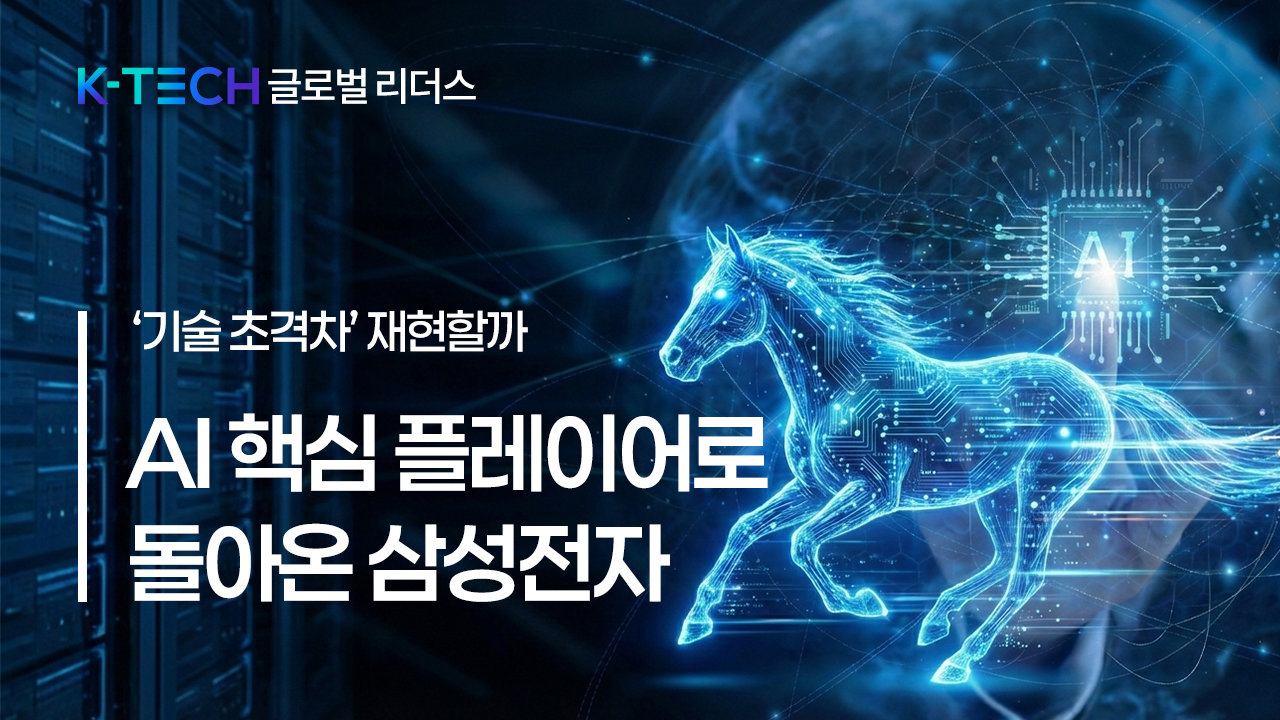
Tech Chat
"AI Dubbing Mimics Actor So Ji-sub's Voice"
Dong-A Ilbo |
Updated 2025.09.20
Dong-A Ilbo IT Science Team journalists introduce noteworthy technologies, trends, and companies in the fields of IT, science, space, and bio. "What is this company?" The behind-the-scenes stories of tech companies changing the world with technology! From ideas that surprised the world to the current concerns of founders, they delve into everything you were curious about.
Eastsoft's AI dubbing platform 'Perso.ai'. Provided by Eastsoft
AI Dubbing Without Voice Actors... A Breakthrough for 'K-Content'
What methods are available to simultaneously show popular dramas that have been a big hit domestically to global audiences in the US, Europe, Asia, and beyond? Consider the example of the work [Sorry, I Love You] starring So Ji-sub and Im Soo-jung.Currently, overseas OTT (over-the-top) platforms like Netflix are the only answer. Without partnering with overseas platforms like Netflix, it is difficult for Korean broadcasters or production companies to distribute their works on a large scale in the global market. Although works like Netflix's 'K-Pop Demon Hunters' have achieved global success, fueling the K-content craze, the reliance on foreign OTTs is actually increasing.
Another obstacle is the language barrier of Korean. The reason for the 'dubbing' requests for popular 'K-dramas' in the US, Europe, and the Middle East is that this language barrier cannot be overcome with subtitles alone.
Dubbing with local voices results in viewing effects more than 30 times greater than subtitles. Unlike Korea, where subtitle culture is established, overseas audiences prefer dubbed versions. Korea's 'Squid Game' and Spain's 'Money Heist' are representative examples of global success through the power of dubbing.
The problem, as always, is 'capital'. The 'dubbing' done by voice actors has been an area avoided by domestic broadcasters or production companies due to the high production costs. The more dubbed versions are made, the more deficits occur.
The turning point for 'dubbing' production, which was unthinkable with small capital, came with the advent of artificial intelligence (AI) dubbing technology.
'AI dubbing', which drastically reduces costs and production time, can change the voices of the actors in the video into various languages worldwide without using voice actors. The key is to naturally implement even the lip movements. AI dubbing has reached a level where it can convey the various 'emotions' of actors in more complex dramas without awkwardness, compared to educational content or informational videos.
Eastsoft's AI dubbing platform 'Perso.ai'. Provided by Eastsoft
From Tone and Intonation Reproduction to Lip Sync with AI
The government is also positioning AI dubbing technology as a key weapon to secure K-content competitiveness for this reason. The Ministry of Science and ICT has allocated an additional budget of KRW 8 billion this year to support dubbing using AI technology. AI dubbing technology is used to meticulously reproduce non-verbal expressions such as the speaker's tone and intonation, suitable for the characteristics of each genre, including dramas, K-pop, movies, and entertainment.Eastsoft, selected as the lead company for the AI dubbing specialized support project, is working on localizing 200 hours of K-content, including the drama 'Sorry, I Love You' and the entertainment program 'I Am Solo', using the technology of its AI dubbing platform 'Perso.ai'.
Perso.ai provides 'AISaaS' (AI Software as a Service) that can create voice in 110 languages with just text input. It is characterized by enhancing immersion by meticulously implementing not only the speaker's tone and intonation but also non-verbal expressions.
Jung Sang-won, CEO of Eastsoft, explained, "Netflix has not yet automated AI dubbing and is still doing dubbing work through voice actors," and "The genre of drama, which has many intense and delicate emotional expressions, is at a stage where the technology to make it really natural with AI dubbing is now becoming full-fledged."
AI dubbing separates each voice from the original work, converts it into text, and then transforms the text into natural voice through TTS (Text-to-Speech) technology. It maintains consistency through voice cloning that matches the actor's tone and undergoes complex work to match the lip movements on the screen. Different AI engines are used for each work section, and the most complex and advanced technology in this process is perfect lip sync implementation. This is because natural lip synchronization must be achieved with AI optimized for the characteristics of Korean pronunciation.
CEO Jung emphasized, "Considerable technological investment is required to fully automate drama with AI dubbing," and "At this important time when K-content can be distributed worldwide, the government has played a priming role as a national project. Since government support, there have been many inquiries from domestic and foreign broadcasters about whether AI dubbing can be done for long-form or documentary content."
A scene converted to Spanish dubbing through tech technology. Provided by Eastsoft
Netflix and YouTube Also Actively Investing in 'AI Dubbing'
It also provides an opportunity for domestic YouTubers to enter the global market. This is because YouTube videos produced in Korean can be easily converted into various languages such as English, Chinese, Japanese, and Spanish through AI dubbing. Famous YouTubers like Techmong, HiU, and Big Star Teacher are producing and releasing Korean videos in English, Japanese, and other versions using Eastsoft's AI dubbing technology.CEO Jung stated, "It is known that Netflix spends about KRW 15 trillion on content production, and among that, KRW 4.5 trillion is spent on dubbing."
Netflix has also recently revamped its dubbing system to enhance the global competitiveness of its content. It plans to support dubbing in up to 30 languages for original content and provide an average of 10 language dubbed versions for general works. The aim is for viewers to feel as if the content was made in their native language from the start. Netflix is also reportedly investing in AI-based dubbing technology.
Other global media platforms are also active in AI dubbing. YouTube added content auto-translation and dubbing features based on Google's AI model 'Gemini' last year. It also introduced 'Dubbing AI', which synchronizes YouTubers' lip movements to match the dubbed language. Market research firm MarketsandMarkets predicts that the global AI dubbing tool market will grow from USD 794.3 million (approximately KRW 1.1089 trillion) in 2023 to USD 2.9189 billion (KRW 4.075 trillion) by 2033.
.
.
Jang Eun-ji
AI-translated with ChatGPT. Provided as is; original Korean text prevails.
ⓒ dongA.com. All rights reserved. Reproduction, redistribution, or use for AI training prohibited.
Popular News







